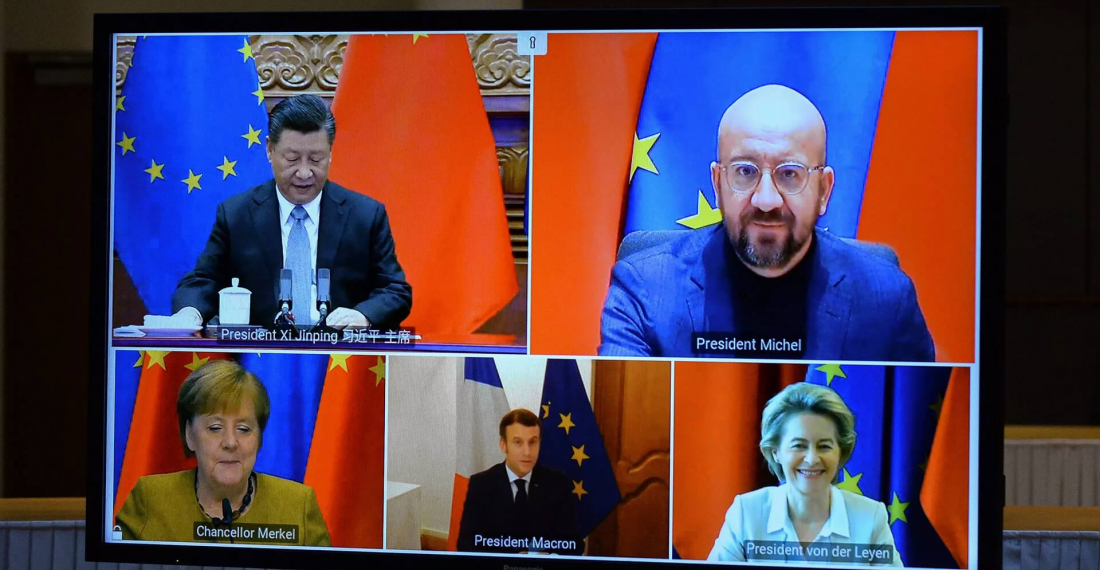The European Union and China are set to open a new chapter in their relations. Following intensive negotiations carried out by the European Commission on the EU's side, the EU and China concluded in principle the negotiations for a Comprehensive Agreement on Investment (CAI).
The President of the European Commission, Ursula von der Leyen, and the President of the European Council, Charles Michel, announced the deal on Wednesday (30 December) in a video meeting with Chinese President Xi Jinping. German Chancellor Angela Merkel and French President Emmanuel Macron were also called in to meet with Xi during the video meeting.
In a press statement following the meeting, EU leaders welcomed the new agreement as an "important milestone" that would give European companies "unparalleled market access" to China, thus promoting the "level playing field".
"The agreement we signed today is the result of months of intensive negotiations in which the European Union has shown an unprecedented degree of unity. It is a fair and balanced agreement that fully protects the European Union's fundamental interests and creates stability and predictability for citizens and businesses", said Michel.
As part of the deal, China promises to open up key sectors of its economy to Europe, including electric vehicle manufacturing, telecoms and healthcare. Beijing also agrees to become more transparent about state subsidies to companies. Europe, for its part, underlines the openness of its market. The deal would give European companies 'fairer' access to the Chinese market and improve competitive conditions.
source: commonspace.eu with agencies
Photo: Chinese President Xi Jinping, EU Council President Charles Michel, European Commission President Ursula von der Leyen, French President Emmanuel Macron and the German Chancellor Angela Merkel (AP)







